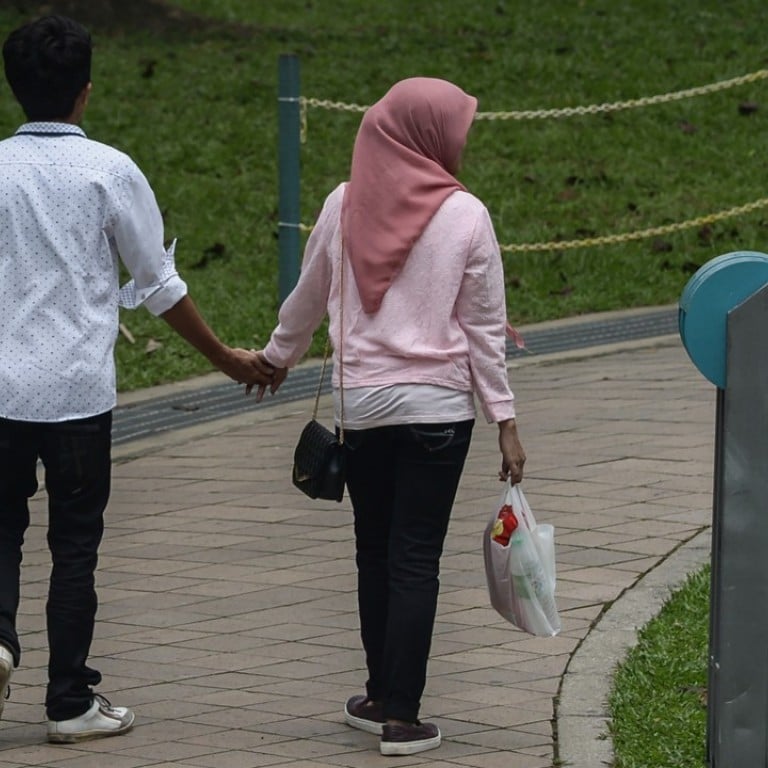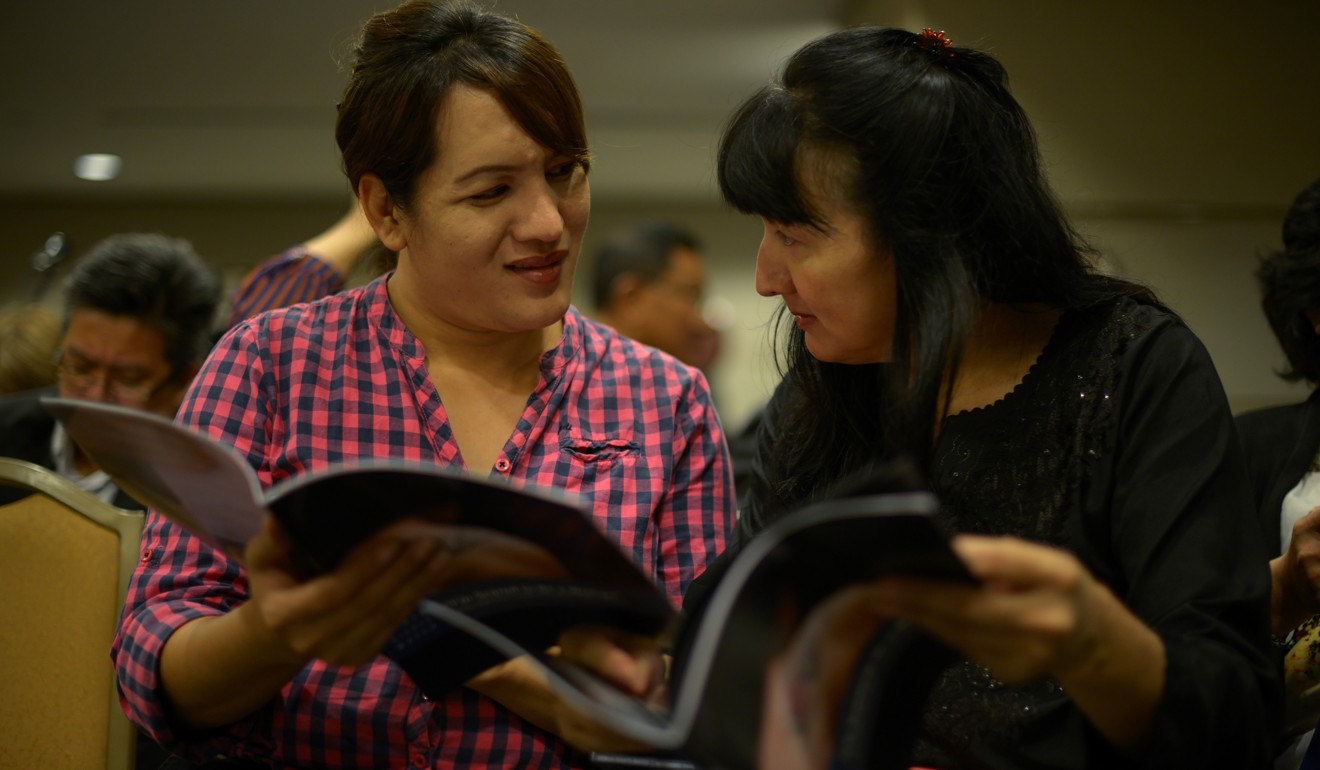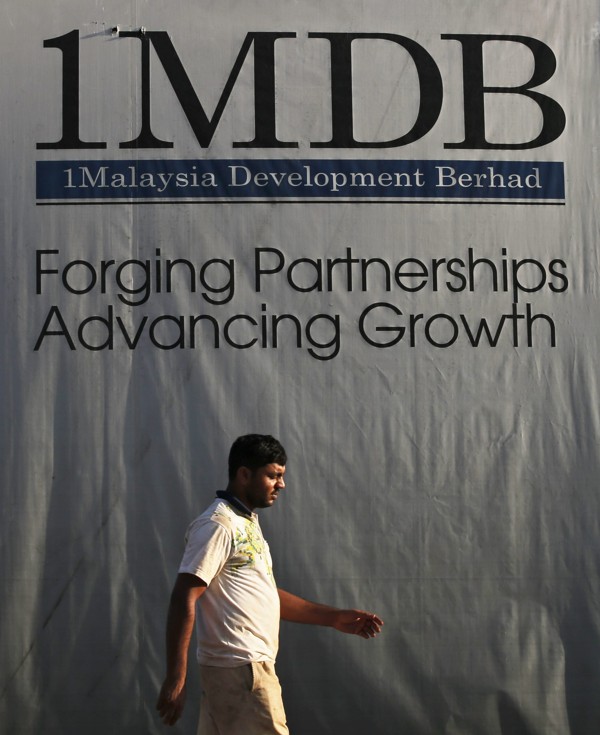
Atheism: the latest whipping boy for Malaysia’s pre-election politics?
Non-believers should be ‘hunted down vehemently’ according to one government minister; others say officials are seeking a distraction from their own scandals
But as a “closeted” atheist, Arrwadah faces family conflict on a regular basis – when his parents ask why he does not attend Friday prayers, when he hides his alcohol consumption from his siblings, and when he eats in secret during the holy month of Ramadan.
But recently, he and a group of atheist friends from various religious backgrounds were “outed” by a photo going viral on social media, and have since become the target of hate from fundamentalist quarters as well as the subject of a government crackdown.
Outrage at Najib plan to give Indian Muslims the same status as Malays
The non-profit group Atheist Republic’s Malaysian chapter, or “Consulate”, met in early August for dinner and drinks, and posted a photo with the caption: “Atheists from all walks of life came to meet one another, some for the very first time… each sharing their stories and forming new friendships that hopefully last a lifetime! We rock!”
The photo, which depicted a group of young, casually dressed Malaysians from different ethnic backgrounds, quickly made the rounds online. Shortly thereafter, the government announced a crackdown to determine if any Muslims were involved in the gathering.
In multiracial and largely Muslim Malaysia, apostasy from Islam is a criminal offence in several states – and under a proposal to introduce the strict Islamic penal code known as hudud, the penalty would be death.

Although this punishment is not yet enforceable due to restrictions by federal law, apostates can still be slapped with a hefty fine, sent for detention in Islamic rehabilitation centres, jailed and even whipped.
The Islamic Affairs Department is reported to have said that state religious departments can take action against any Muslims suspected of apostasy depending on where the “crime” takes place. A federal minister in the Prime Minister’s Department, Shahidan Kassim, said during a press conference in parliament that atheists should be “hunted down vehemently” as the constitution of Malaysia did not allow for atheism. He claimed that the cause of atheism was a lack of religious education, and the youths were “misled” into a new school of thought.
Dr Maszlee Malik, a senior lecturer at the International Islamic University Malaysia, believes the crackdown is a political red herring meant to draw public attention away from real bread-and-butter issues.
“These kinds of activities were well-planned to be sensationalised before the election. [The ruling coalition] Barisan Nasional [BN] will stir religious and racial sentiments, and it’s unfortunate these youths couldn’t read the situation. BN just needs more controversial issues so they can prove to majority rural and conservative Malays that they are the real defenders of Islam.”
This was echoed by Dr Ahmad Farouk Mousa, director of the think tank Islamic Renaissance Front, who said that this move, along with other fundamentalist gestures such as allowing unilateral child conversion, was merely to appease hardliners.

“This group is a lifeline to the current ruling coalition in the face of massive corruption. As for the government – the state really doesn’t have any legitimacy to interfere because what these kids are doing is not curtailing any other citizen’s temporal rights.”
Lutheran pastor Rev Dr Sivin Kit, who is also director of the Centre for Religion and Society, raises the same concerns.
“The minister really overreacted – calling for ‘hunting down’ people is disproportionate to the event in question. We received more measured, thoughtful reactions from some state muftis, but the political leaders seemed far more invested than the religious ones. We should be more critical of their reaction as opposed to young people posting up pictures – I’m actually very cautious and guarded about why the political leaders are so excited about this.”
For the youths in the photo, the threatened crackdown poses very real risks. Some have been outed to their families and others have gone “digitally underground” to avoid threatening messages.
For Arrawdah (not his real name), 26, being an atheist in Malaysia and coming from a conservative Muslim family is an exhausting ordeal.
“Theocratic laws have done nothing good for us: arresting good people for doing nothing wrong, subjecting them to punishment that wouldn’t be carried out to people of different faiths, separating children from their mothers because of a difference of religion, punishing people for their sexual identity or preferences, punishing people for sex. But I think hardest of all is having to live behind a mask every single day, having to lie to your peers, family, and friends day in, day out. Constantly pretending to be someone you’re not in front of your loved ones and not letting them know who you really are. It’s draining,” he said.
The gathering, he said, was just a casual meeting of like-minded friends and the government’s reaction was not commensurate with the “crime”.
“Some choose to discuss topics pertaining to religion, and at times human rights issues dominate the conversations. But to be honest, most of us just want to talk about the latest Game of Thrones episode. The government is overreacting, but I’m not surprised. Ideas that bring about social progress, that challenge antiquated religious dogma have always been seen as a threat. Ideas like women’s suffrage, gender equality and LGBT rights.”
An election like none other, is it time for change in Malaysia?
Dr Azmi Sharom, an associate professor at University Malaya’s Law Faculty, said that the authorities’ mistrust of “otherness” wasn’t restricted to atheism.
“The authorities tend to demonise Muslims who do not follow their school of thought. This includes Ahmadiyas and Shias. The insistence of there being only one school of Islamic thought in Malaysia has become part of the public landscape for many years now. So, no, apostates are not being unfairly demonised – the Islamic authorities demonise all who disagree with them. They are equal opportunity demonisers.”
Atheist Republic founder Armin Navabi said that the Malaysian government had to think “long and hard” before taking action against people for merely attending a meeting.
“Does the Malaysian government really want their image to be put right next to countries like Saudi Arabia? To treat these people like criminals, people who haven’t harmed anybody? They must surely see how ridiculous that will look to the rest of the civilised world,” he said.
“Progress comes in small victories,” said Arrawdah. “The more exposed the public are to our existence, the more attainable that progress becomes.” ■

